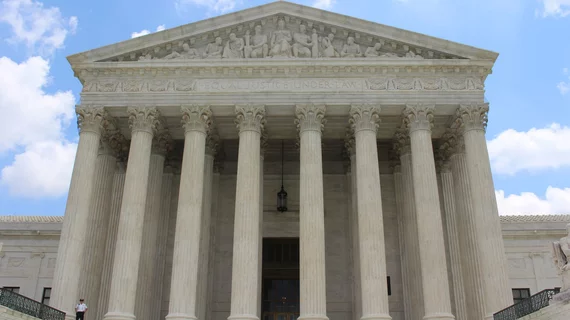Cardiology societies say affirmative action ruling will do long-term damage to patient care
Several U.S. medical societies focused on cardiology and cardiovascular care have released a new statement warning that the Supreme Court’s decision to strike down affirmative action will decrease diversity at medical schools and have a negative impact on patient care throughout the country.
The American College of Cardiology, American Heart Association, American Society of Nuclear Cardiology, Association of Black Cardiologists, American Association of Heart Failure Nurses, Heart Failure Society of America, Heart Rhythm Society, Society for Cardiovascular Angiography and Interventions, Society of Cardiovascular Computed Tomography, Society of Cardiovascular Magnetic Resonance and Society for Vascular Medicine all signed the joint statement.
“A reduction in the diversity of college and medical students would have significant downstream effects on the diversity of residents, fellows and cardiologists—harming the strength of our clinician workforce and ultimately impacting the care of patients in underrepresented communities,” the groups wrote.
The statement also emphasized that the societies and their members will “remain more committed than ever to continuing and expanding our efforts to support diversity, equity and inclusion in the cardiovascular profession.”
“Together, we will build upon our efforts to provide implicit bias training, develop mentoring and professional development programs for young scholars and medical school attendees, and support young investigators with dedicated research awards and funding,” the groups wrote. “At the end of the day, we will succeed in fostering the diverse care ecosystem needed to ensure cardiovascular health equity for all patients and their families over the course of generations to come.”
How the American Medical Association responded to the Supreme Court’s ruling
The American Medical Association (AMA) released a statement of its own about the ruling, saying it will “undermine decades of progress.” Back in 2022, the AMA and more than 40 other organizations wrote an amicus brief urging the Supreme Court to “take no action that would disrupt the admissions processes the nation’s health-professional schools have carefully crafted in reliance on this court’s longstanding precedents.”
“There is no way to know how non-diverse the healthcare community would become in future years and decades if holistic review were forbidden in medical education, but it is clear that the lives and health of the American public would be gravely diminished,” the groups wrote.
Read the full amicus brief here.

